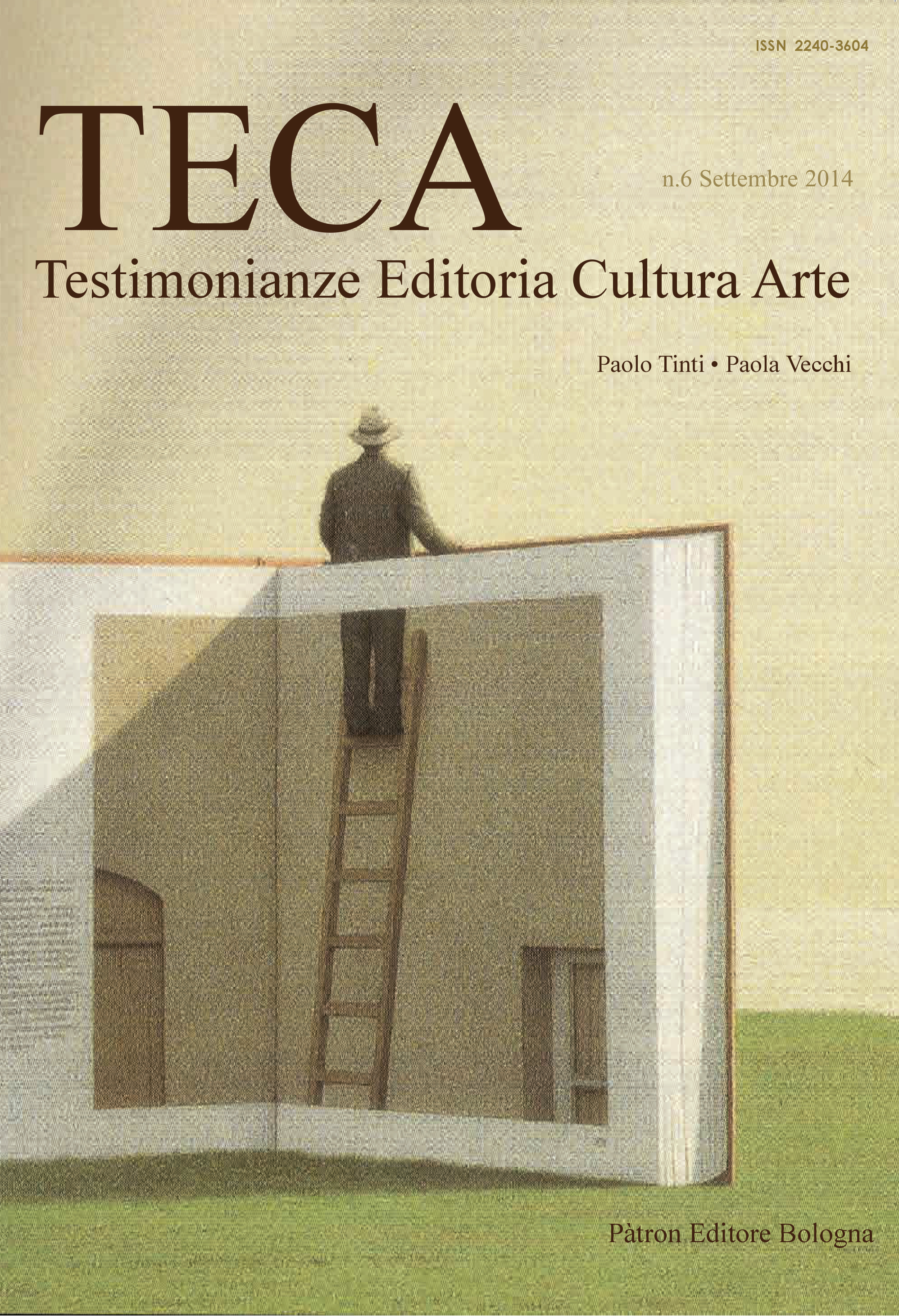The «Dialogue With Books» Between the 19th and 20th Centuries
DOI:
https://doi.org/10.6092/issn.2240-3604/16257Keywords:
Humanism, Books, Giosuè Carducci, Giovanni Pascoli, Gabriele D'AnnunzioAbstract
The dialogue with books is a typical theme of Renaissance Humanism, which inherited it from classicali literature. Its highest expression is to be found in Machiavelli's letter to Francesco Vettori, written on 10 December 1513. The last great writer who conforms to this pattern is Giosue Giovanni Pascoli will also entertain a dialogue with the classics through the books. Gabriele d'Annunzio, in turn, will treat the volumes of his Gardone library as building material of his own superhuman identity; not to mention Filippo Tommaso Marinetti who, in the same period, advocates the destruction of archives and libraries. After Carducci, hence, the respectful relationship with the classics dating back to Machiavelli is compromised. This is the symptom of the crisis of the humanistic paradigm, which had inspired Western culture throughout several centuries.
Downloads
Published
Issue
Section
License
Copyright (c) 2014 Vittorio Roda

This work is licensed under a Creative Commons Attribution 4.0 International License.





